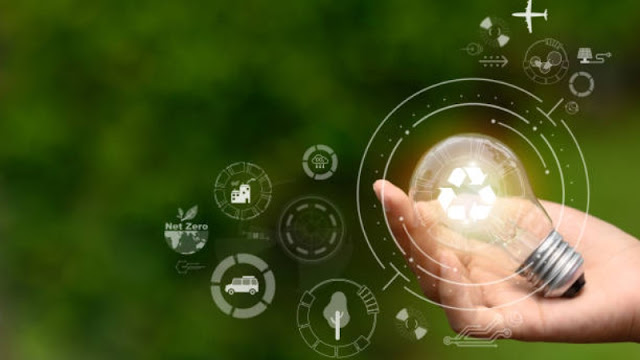Digital at the Service of Sustainable Development: Harnessing Technology for a Greener Future

Introduction
In the 21st century, the world faces unprecedented challenges, ranging from climate change to resource depletion, necessitating innovative solutions for sustainable development. As we navigate this complex landscape, digital technologies emerge as powerful tools to drive positive change. This explores the intersection of digital innovation and sustainable development, highlighting how technology can be harnessed to address environmental, social, and economic challenges. Read More: biztipsweb
I. The Digital Transformation
A. Defining Digital Transformation
Digital transformation refers to integrating digital technologies into various aspects of human life, business, and society. From artificial intelligence (AI) and the Internet of Things (IoT) to blockchain and big data analytics, these technologies are reshaping how we live and work.
B. The Impact on Business and Society
Businesses increasingly adopt digital solutions to enhance efficiency, reduce costs, and create new opportunities. The Fourth Industrial Revolution is marked by the fusion of technologies, blurring the lines between physical, digital, and biological realms. This transformation is not confined to the corporate sector; it extends to education, healthcare, agriculture, and governance.
II. Digital Technologies and Environmental Sustainability
A. Climate Change Mitigation and Adaptation
- Renewable Energy Integration: Digital technologies optimize the efficiency of renewable energy sources, facilitating their integration into the grid. Smart grids, for instance, enhance energy distribution, reduce wastage, and support solar and wind power use.
- Precision Agriculture: Agricultural practices benefit from digital innovations like precision farming, which uses data and technology to optimize crop yields while minimizing environmental impact. This leads to more sustainable and resource-efficient agriculture.
B. Conservation and Biodiversity
- Monitoring and Surveillance: Digital tools such as satellite imaging, drones, and sensors enable real-time monitoring of ecosystems. This aids in the protection of biodiversity by tracking wildlife, detecting illegal activities, and assessing environmental changes.
- Blockchain for Conservation: Blockchain technology can be employed to create transparent and tamper-proof records of transactions, which is crucial for ensuring the authenticity of eco-friendly practices and sustainable sourcing of natural resources.
III. Digital Solutions for Social Development
A. Education and Inclusion
- E-Learning Platforms: Digital platforms make education accessible to a global audience. E-learning initiatives empower individuals in remote areas to acquire knowledge and skills, contributing to lifelong learning.
- Digital Literacy Programs: Bridging the digital divide involves providing access to technology and ensuring that people have the skills to use it. Digital literacy programs are essential for empowering communities.
B. Healthcare Access and Innovation
- Telemedicine: Digital technologies enable remote healthcare services, addressing the challenge of healthcare access in underserved areas. Telemedicine consultations, wearable health devices, and AI diagnostics enhance healthcare outcomes.
- Big Data in Public Health: Data analytics are crucial in predicting and managing public health crises. Analyzing large datasets helps identify disease patterns, track outbreaks, and allocate resources efficiently.
IV. Economic Growth and Sustainable Practices
A. Circular Economy
- Product Lifecycle Management: Digital tools assist in tracking the entire lifecycle of products, promoting a circular economy where resources are reused, recycled, and repurposed. This reduces waste and minimizes environmental impact.
- Supply Chain Transparency: Blockchain technology enhances supply chain transparency, allowing consumers to trace the origins of products. This encourages businesses to adopt sustainable and ethical practices throughout their supply chains.
B. Financial Inclusion and Innovation
- Mobile Banking and Digital Payments: Digital financial services provide opportunities for financial inclusion, especially in regions with limited access to traditional banking. Mobile banking and digital payments empower individuals economically.
- Fintech for Sustainable Investments: Financial technology (fintech) platforms contribute to sustainable development by channeling investments into environmentally friendly projects. Blockchain-based solutions ensure transparency and accountability in financial transactions.
V. Challenges and Ethical Considerations
A. Environmental Concerns
- E-Waste Management: The rapid pace of technological advancement leads to a surge in electronic waste. Sustainable disposal and recycling practices are essential to mitigate the environmental impact of e-waste.
- Energy Consumption: The energy requirements of digital technologies, especially data centers, raise concerns about their carbon footprint. The industry must prioritize energy-efficient solutions and renewable energy sources.
B. Social and Ethical Implications
- Digital Divide: Despite the potential for positive impact, the digital divide persists, with marginalized communities having limited access to technology. Addressing this gap requires concerted efforts in infrastructure development and digital literacy programs.
- Data Privacy and Security: The collection and utilization of vast amounts of data raise concerns about privacy and security. Striking a balance between leveraging data for societal benefits and protecting individual privacy is a critical challenge.
VI. The Road Ahead: A Holistic Approach
A. Collaboration and Multistakeholder Engagement
- Public-Private Partnerships: Collaboration between governments, businesses, and civil society is essential for harnessing digital technologies for sustainable development. Public-private partnerships can facilitate the sharing of resources and expertise.
- Global Cooperation: Given the interconnected nature of environmental and social challenges, international cooperation is crucial. Shared standards and frameworks can guide the responsible use of digital technologies globally.
B. Innovation for Sustainability
- Research and Development: Continued investment in research and development is necessary to drive innovation in digital technologies that promote sustainability. This includes developing energy-efficient algorithms, eco-friendly materials, and cutting-edge solutions for sustainable development.
- Ethical Design Principles: Integrating ethical considerations into the design and deployment of digital technologies is imperative. This involves prioritizing sustainability, inclusivity, and social responsibility in development.
Conclusion
Digital technologies hold immense potential to accelerate progress toward sustainable development goals. From addressing climate change and promoting environmental conservation to enhancing social inclusion and fostering economic growth, the impact of digital innovation is profound. However, realizing this potential requires a concerted effort to overcome challenges, ensure ethical practices, and promote collaboration on a global scale. By embracing a holistic approach, we can leverage the power of digital at the service of sustainable development, paving the way for a greener and more equitable future.


